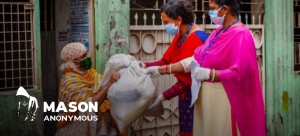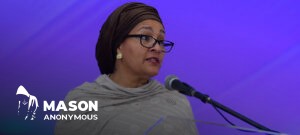While acknowledging that the planet was not on track last year to deliver the Sustainable Development Goals (SDGs) by 2030, he told the start of the Ministerial Segment of the High-level Political Forum (HLPF) that today “our world is in turmoil”.
In addition to unacceptably high levels of poverty; a rapidly worsening climate emergency; persistent gender inequality; and massive gaps in financing, the UN chief called COVID-19 “another massive global challenge”.
The gravity of the crisis should not be lost on anyone — UN chief
Pointing to more than 12 million infections, 550,000 deaths, hundreds of millions of jobs lost and the sharpest decline in per capita income since 1870, the top UN official bemoaned that “some 265 million people could face acute food insecurity by year’s end – double the number at risk before the crisis”.
“The gravity of the crisis should not be lost on anyone”, he said, “and the impacts of this pandemic are falling disproportionately on the most vulnerable”.
“Although “we desperately need to leap ahead, COVID-19…is taking us further away from the SDGs”, the UN chief commented.
Turning around
The Secretary-General cited inequalities within and between countries; a lack of resiliency investments; and disregard for the natural environment as some of the reasons sparking the “devasting impacts” of the COVID-19 crisis.
And although “we have yet to take the SDGs seriously”, he maintained, that “we can turn this around”.
“With the 2030 Agenda [for Sustainable Development], and the SDGs, we have an enduring and unifying vision; a framework to guide our decisions as we look to respond and recover better”, upheld the UN chief.
New normal
The world cannot go back to “the previous so-called normal”, Mr. Guterres acknowledged, stressing the need for SDG-inspired solutions.
“We must rise to meet the moment”, he said, urging the HLPF to “share experiences, understand what works and can replicated” and renew determination for multilateral responses to help turn the tide globally.
The HLPF aims to chart a clearer path for countries to better recover, share experiences and fend off challenges in pursuing the Global Goals, while sharing strategies to tackle the pandemic and help countries meet their commitments by 2030.
Multi-dimensional challenges
According to Mona Juul, President of the Economic and Social Council (ECOSOC), under whose auspices the meeting is being held, the pandemic is “not only a threat to our health, but a human crisis of multiple dimensions”.
After a week of expert-level discussions, she noted the setbacks caused by COVID-19, and encouraged a response in alignment with the 2030 Agenda “if we hope to accelerate and maintain social and economic progress”.
The ECOSOC head spelled out: “Global leadership must be strengthened in all areas” and we must galvanize our responses both individually and collectively “to work together better, and ensure that this decade ushers a new era of peace and prosperity for all”.
She elaborated on some of the steps needed, including sharing economic benefits, revamping social protection programmes, delivering universal health care for all, empowering women and girls, listening to youth and halting the reversal of gains made by the most vulnerable groups of countries.
“We must find the way to leverage political will, to ensure evidence-based decision-making”, she underscored. “The recovery phase from the pandemic represents an opportunity for all levels of government to build back more inclusive, equal, resilient and sustainable societies”.
In closing, Ms. Juul commended the participants and the 47 countries that presented their Voluntary National Reviews (VNR) on concrete plans of action to meet the 2030 challenge.
‘Collective efforts’
General Assembly President, Tijjani Muhammad-Bande, called for “collective efforts to accelerate action and carve out transformative pathways to ensure that we leave no one behind”.
“Humanity cannot survive these multiple parallel crises if we do not work together with full respect for all peoples and all life on this planet”, he stressed, pushing for “a whole of Agenda approach”.
The Assembly president elaborated on the need to provide social protection, protect human rights, promote health and invest in infrastructure while prioritizing education, clean water and sanitation.
Financing progress
And progress requires financing.
“We must work to alleviate the impact on the well-being and livelihoods of people in developing countries and build back better to bolster their economies”, he advised, underlining the need to “uphold our commitments to finance sustainable development efforts”.
Creating vital fiscal space for investments to guarantee sustainable development for countries in need requires “improved governance, fair tax systems and a renewed commitment to eliminate illicit financial flows”, the UN official stated.
“Make no mistake, durable solutions emanate from strong political will and resilient institutions”, he explained and building economies with decent work for all is “the foundation” of an inclusive future.
“This is a moment of reckoning”, concluded the Assembly president. “Now is the time to build back better, to step up our ambition and translate the Global Goals into local action… to create the future we want”.
Voices of youth
On behalf of youth speakers, Farai Mubaiwa, Co-Founder of the Afrika Matters Initiative (AMI) and the lead at South Africa’s Youth Employment Service, spoke about what she identified as other pandemics, including femicide, which “ravages women and girls across Member States”; the plight of black bodies globally; and the human impact on climate change.
Calling young people “the leaders of today” who are “actively changing their communities for the better”, Ms. Mubaiwa declared that “youth inclusion is no longer a debate, it is a necessity” to confront what lies ahead.
Meanwhile, in her keynote statement, youth speaker Tina Hocevar, Vice-President of the European Youth Forum, counselled against a future that goes back to “normal”, saying that it had never worked “for the majority of us, nor for our planet”.
In looking ahead, she advised participants instead to embrace change with compasses “set on promoting fairness, equity, integrity, human dignity and human worth”.

UNAMID/Amin Ismail
A High-Level Sudan Partnership Conference in Berlin acknowledged young people, especially women and girls, as drivers of change for a democratic, free and peaceful country.





